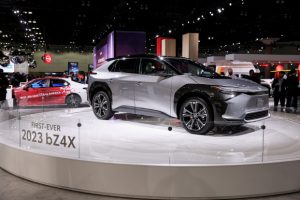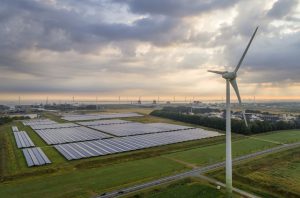Under fire from climate activists and governance-minded investors, Japan’s Toyota Motor defended its slow entry strategy into the electric vehicle (EV) market, saying it needed to offer motorists a variety of choices.
Once a darling of environmentalists, Toyota has more recently drawn criticism over its apparent reluctance to phase out petrol-powered cars.
Detractors say Toyota’s lobbying activities work to undermine the transition to EVs.
Energy and climate think-tank InfluenceMap has rated it the worst among major carmakers for its lobbying record on climate policy, which includes public statements and interaction with governments.
“We are extremely concerned that Toyota’s lobbying activities are misaligned with its climate goals and its EV strategy,” New York City’s top finance official said in a statement ahead of the shareholder meeting.
‘Competitive Disadvantage’
City comptroller Brad Lander oversees a pension system with $253 billion in assets under management, including about $140 million worth of Toyota shares.
“Toyota’s approach puts it at a competitive disadvantage compared to its peers, which have shown a far greater commitment to transitioning to battery electric vehicles,” he said.
The largest Danish pension fund also criticised Toyota’s strategy as the carmaker holds its annual general meeting on Wednesday.
Toyota last year committed 8 trillion yen ($60 billion) to electrify its cars by 2030, with half of that slated to develop battery-powered vehicles.
Still, it expects annual sales of such cars to reach only 3.5 million vehicles by the end of the decade, or around a third of current sales.
It says hybrids make sense in markets where infrastructure isn’t ready to support a faster move to battery vehicles.
In a statement, Toyota said it was committed to ensuring national policies, societal needs, technological advances, and customer needs all pointed in the same direction.
- Reuters, with additional editing by George Russell
READ MORE:
Toyota Rolls Out All-Electric SUV in Japan – For Lease Only
Toyota Says India Will be EV Parts Making Hub
Thailand Boosts Carmaking Prospects With Toyota EV Deal
























